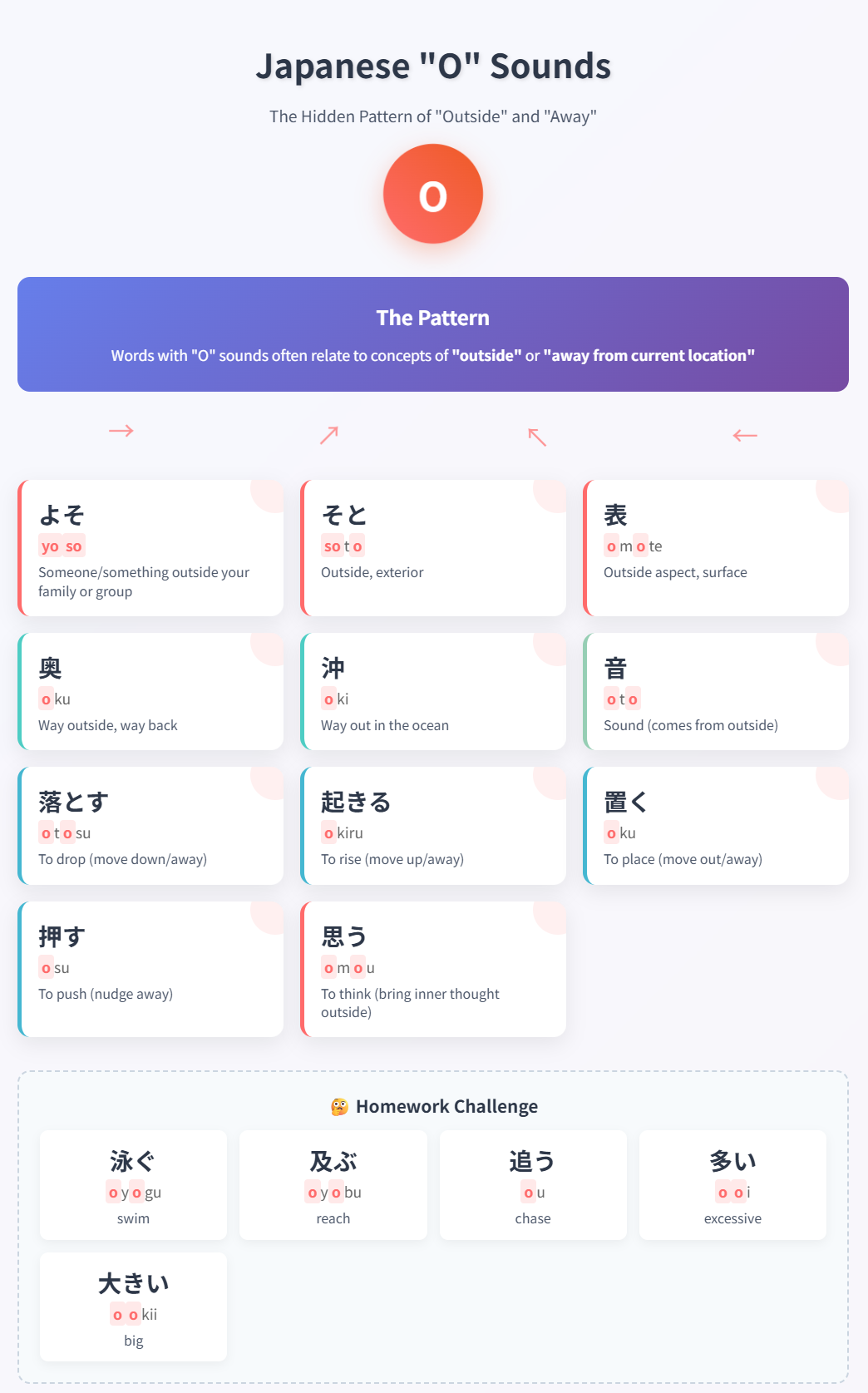In Japanese, "o" is for "outside" or "away"
In Japanese, lots of words with an “o” sound in them are related to the notion of outside or away.
This is just one example of the kinds of principles that underlie native Japanese. Knowing them is not just fun, but can also make it easier to learn and remember Japanese.
For example, consider the word yoso, which means someone or something or someplace outside your family or group or location. Check out those two “o” sounds!
Or of course there is soto, which literally means outside or exterior. Again, we have two “o” sounds!
We spent quite a bit of time in a past post looking at the word omote (表), which means “outside aspect”. And we noted how it’s related to omou (思う), which means to bring an inner thought to the outside. Again, two “o” sounds!
The word oku (奥) means something that is way outside, or way back in something. The word oki (沖) means far away out in the ocean.
And how could we forget the word oto (音), for sound? Because sounds come from outside.
Then there are verbs like otosu (落とす, to drop something). But what does that have to do with “outside-ness”? It turns out that “o” sound in Japanese can actually mean something a little more general than just “outside-ness”. It can mean anything away from the current location. Dropping something moves it down from the current location. Okiru (起きる, raise) moves something up from the current location. Oku (置く, place) moves something out, away from the current location. Osu (押す, “push”) means to nudge something away from the current location.
Homework
Can you imagine how the following words related to “outsideness” or “awayness”?
oyogu (泳ぐ, “swim”)
oyobu (及ぶ, “reach”)
ou (追う, “chase”)
ooi (多い, “excessive”)
ookii (大きい, “big”)
Here’s a handy summary of today’s post:





